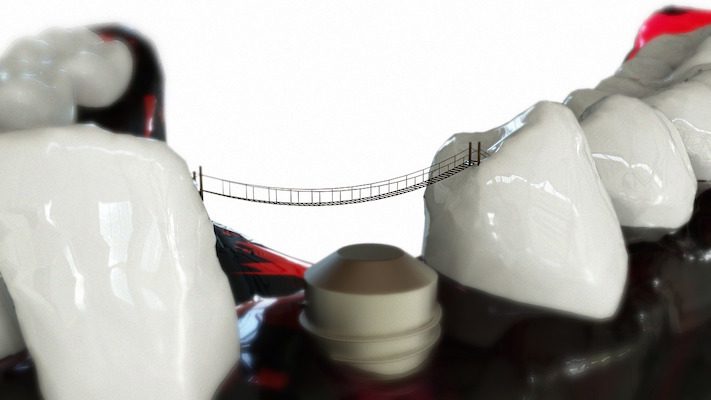Dental implants are one of the most proven ways to successfully replace missing teeth and restore jaw and bite functionality. Titanium alloy implants have been around since 1965 and have been the reigning supreme for implant material since. To get long-lasting fake tooth implants to osseointegrate, there isn’t a material that’s more reliable than titanium. But like any other procedure ever, they do come with their risk of complications. Even with the highest-quality dental implants out there, there’s still the risk of infection around the site post-op. Infections cause the gums to bleed easily around the site and become tender and swollen. In most cases, it’s incredibly treatable and reversible. If left for too long, however, it compromises the integrity of that bright, shiny dental implant that looks just like the real deal.
Thankfully with the advances in technology, oral surgeons are now learning how to implement antimicrobial coatings to the titanium implants that help keep the bad stuff out and keep your implants going strong after your operation. When you’re going to an oral surgeon in your area for new dental implants that fit well, you’ll want to add antimicrobial coatings to your list of things to discuss prior to your procedure—here’s why.
It Helps Stave Off Post-Op Infections
The best reason to ask about adding an antimicrobial coating when getting a tooth replacement is that it will help greatly prevent one of the biggest things you want to watch out for after your procedure: peri-implantitis. Peri-implantitis sets in when the soft tissue surrounding your newly-placed titanium tooth implant starts to break down due to infection. If left untreated, it can lead to implant failure, which is kind of the exact opposite of what you want to happen when you just went through all the steps to get an implant. Even if you managed to swing an incredibly affordable dental implant with your dental doctor who specializes in teeth replacements, you’re not going to want to end up forking over your hard-earned money for another. Peri-implantitis is treated by giving the affected area a thorough, deep clean and following up treatment with antimicrobial therapy.
Having that antimicrobial coating on your basically perfect tooth implant right off the bat helps minimize the risk of peri-implantitis and any other infection settling in as the currently vulnerable area surrounding the implant heals. All in all, they actually serve to reduce discomfort around the site of the implant. Fewer complications mean less pain and decreases the need for additional treatments. This is especially great news for anyone who isn’t keen on visiting the dentist. And it’s even better for those who want to have a holistic tooth replacement without the need for pain medications. By investing in an antimicrobial coating, it leads to an overall more positive experience for the patient.
They Increase Implant Success Rates
Antimicrobial coatings not only drastically the reduce of infection at the site of your artificial tooth implant, but it also helps to promote healing. As we all know, our mouths play host to hundreds of different species of microbes. Some of them are helpful, and some of them… not so much.
With the antimicrobial coating, it keeps everything off, meaning your body can focus on healing the surgical site without having to also fend off and keep you protected from all the organisms hanging out in your mouth. You’ll have quicker healing time, leading to a more positive experience and a higher success rate. It’s a win-win all around.
They’re Simple and Effective
Implant coatings to help ward off bacteria are simple in concept and have been proven time and again to almost completely negate the chance of bacteria adhering on the implant surface. Well-made dental implants aren’t an oral surgery that doesn’t break the bank. They’re intended to last nearly a lifetime, and it takes an oral surgeon adept at installing implants to get them in there and restore your smile, so you get what you pay for. Depending on where you go, you can expect to pay anywhere from $1500-$8000 for a single-tooth dental implant. While it’s certainly possible to look around and find dental implants on the cheap, it’s still not an amount of hard-earned money you’re going to want to drop twice on the same thing.
Antimicrobial coatings can honestly be seen as securing the investment in your new, titanium chomper. Think about it like fluoride at your yearly teeth cleanings—it’s an extra charge, but it helps prevent tooth decay. You’re setting yourself up for success down the line so that you don’t end up owing a fortune when replacing an infected implant. Not to mention, any sort of tooth infection is downright one of the most uncomfortable things to endure. Getting that extra antimicrobial coating is one of the easiest ways to invest in your smile for years to come.
As you’re discussing your dental implant with your oral specialist, be sure to ask about antimicrobial coatings—you’ll be glad you did.








